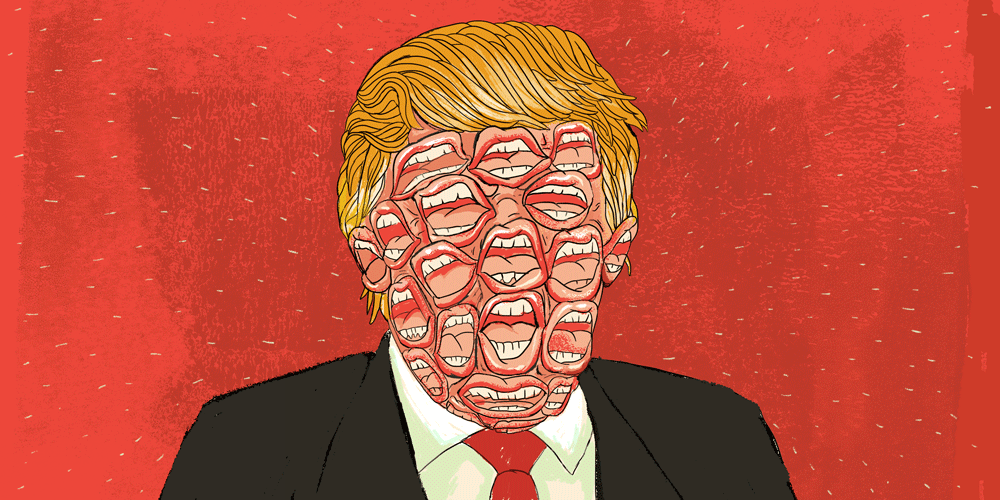How to World Views the U.S. Presidential Race and “The Donald”
Medical Pharmaceutical Translations • Mar 28, 2016 12:00:00 AM

The current U.S. presidential race has introduced us to many different personalities, caused great divides and fueled a lot of debates. It has also long ceased to be just a local American story. International interest in the race to the White House has intensified and baffled many around the globe. Most countries have been focusing on the one candidate that has dominated the coverage of the race, Republican forerunner Donald Trump. They have heard the sound bites, seen the footage of pummeled protesters, and heard Trump’s rhetoric. The world has been listening to the current U.S. political spectacle and they have strong opinions…
Our neighbors to the north are feeling a bit smug. As one Canadian reporter put it, “the unhinged rhetorical fusillades” of Ted Cruz and Donald Trump, in particular, have become a “form of ironic reality show entertainment.” Canada may be laughing, but it is a nervous laugh because they see a neighbor they no longer recognize. To some, the campaigns are one of “naked religious bigotry, of race paranoia, of curdled nostalgia for mythologized greatness.”
Most Europeans have a hard time taking Trump seriously because their expectations of politicians differ. “There is a bit of bewilderment that somebody who can say the outrageous things that he says is still regarded as a serious political figure in the States,” said Christopher Cermak, a US journalist working in Germany. Europe’s newspapers’ commentary on Trump is almost uniformly disparaging. German newspapers label him “Großmaul,” or loudmouth. French newspapers describe him as the “American Nightmare.” To France, “The Donald” fits perceived European stereotypes of America: excess, vulgarity, ignorance, superficiality, lack of culture, love of wealth, to name a few. He epitomizes the America they love to hate.
The UK’s Freddy Gray of The Spectator, describes Trump supporter fervor as “uniquely American because it is uniquely angry. It doesn’t matter that Trump’s speech jumps about all over place: his inarticulacy is itself an expression of rage.” Gray continues, “Angry voters don’t have time for details. They just want someone to share their frustration, even if that person is himself a grotesque example of a global elite that has grown richer as average American incomes stagnate.”
In Great Britain, so fervent are the feelings about Trump, that even members Parliament have debated banning him from Britain for alleged hate speech. One parliament member said Trump’s words are “not comical. His words are not funny. His words are poisonous. They risk inflaming tension between vulnerable communities.” Even though British Prime Minister David Cameron has called Trump, “divisive, stupid and wrong” with regards to banning Muslims from traveling to the U.S., he is not in favor of banning him from him from Great Britain. Cameron said of Trump, “If he came to visit our country, I think he would unite us all against him.”
Denmark hopes a Democrat like Bernie Sanders wins because his platform more closely resembles their ideologies. When it comes to the Republican party, Danes just can’t synchronize with such an incompatible worldview. One Dane said, “When it comes to Trump, even Denmark’s most xenophobic politicians look at him as if he’s insane.” The same Dane pleads, “For the love of all that is good, please don’t elect Trump.” He adds, “If you do, be ready to be ridiculed.”
In Iran, a Trump’s rhetoric reminds them of George W. Bush’s “Axis of Evil” speech. They feel Trump is resurrecting the hostility of that speech and, if elected, would undermine the current progress achieved by President Obama and the moderate government of Iranian President Hassan Rouhani.
Japan feels that the presidential candidates should drop the fear mongering and unfounded claims that certain countries pose a threat to the U.S. Trump has proclaimed, “Countries like China, Japan and Mexico are killing us economically…Our country is in serious trouble.” According to Koya Ozeki, a Washington correspondent for a major Japanese newspaper, “The idea that Japanese economic might somehow endangers Americans is almost laughable after two decades of deflation in Japan.”
In South Africa, only Trump has found space in South Africa’s coverage of the primaries. One South African says, “It is Trump this and Trump that, outdoing himself again and again with his bigotry.”
Not everyone has unkind words for Trump. Russian President, Vladimir Putin described Trump as “a very colorful and talented man.” According to the editor of The Moscow Times, Putin views Donald Trump as a “populist willing to throw the usual values to the wind,” making Trump a natural ally and a “potential vehicle for Putin’s own global interests.” If Trump secures the Republican nomination, Russian officials are expected to celebrate.
Looking around the world, most citizens of nearly every nation are turning their back on rigid tenets and xenophobic rhetoric in favor of tolerance, respect, intelligent debate and alleviating issues rather than exacerbating them or creating new, deep wounds. Argentina’s President Macri said it best. “The twenty-first century,” he believes, “demands that we have to be open and not put any more ideologies in front of the best solutions.” This should be the goal for any world leader, no matter what side of the fence you are on.
by Ilona Knudson
#Trump #translations #DonaldTrump #TheDonald #HowtheworldviewsDonaldTrump #aiatranslations
